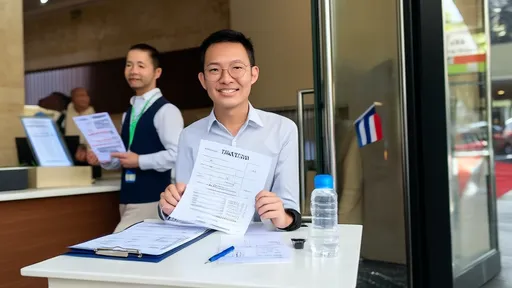For individuals applying for an Australian visa, the medical examination is a crucial step in the process. The Australian Department of Home Affairs requires certain visa applicants to undergo a health assessment to ensure they meet the country’s health standards. This examination must be conducted by a panel physician at an approved medical facility. Navigating the appointment booking system can be challenging, especially for those unfamiliar with the process. Understanding how to schedule an appointment at a designated hospital is essential to avoid delays in visa processing.
Designated hospitals for Australian visa medical examinations are carefully selected by the Australian government to maintain consistent standards across different countries. These facilities are equipped to perform the required tests, including chest X-rays, blood tests, and general physical examinations. Applicants must ensure they visit an approved clinic, as medical reports from non-approved providers will not be accepted. The list of authorized hospitals can be found on the official Australian immigration website, and it is advisable to verify the clinic’s credentials before booking an appointment.
Scheduling an appointment typically involves contacting the hospital directly, either via phone or online. Some clinics offer dedicated booking portals for visa medical examinations, streamlining the process for applicants. It is recommended to book well in advance, as appointment slots can fill up quickly, particularly in high-demand locations. Applicants should also confirm the required documents, such as a passport, visa application reference number, and any prior medical records, to avoid complications on the day of the examination.
The medical examination itself is thorough and designed to assess whether an applicant poses any public health risk or may require significant healthcare resources in Australia. The panel physician will review the applicant’s medical history, conduct a physical examination, and order necessary tests. Results are then submitted directly to the Australian immigration authorities. Delays can occur if additional tests are needed, so applicants should factor this into their visa application timeline.
Preparation for the medical examination is key to ensuring a smooth process. Applicants should get adequate rest before the appointment and avoid consuming alcohol or excessive caffeine. Fasting is usually not required unless specified by the clinic. Wearing comfortable clothing and bringing any relevant medical documents can help expedite the examination. If the applicant has a pre-existing medical condition, it is advisable to carry supporting documentation from their treating physician.
For families applying together, each member must attend their own medical examination, including children. Some clinics offer family packages or group appointments, which can simplify scheduling. Parents or guardians should accompany minors to their appointments and be prepared to provide identification and consent forms. The Australian immigration department takes child welfare seriously, and any discrepancies in medical reports may lead to further scrutiny.
Post-examination procedures vary depending on the results. In most cases, if no further tests are required, the medical report is uploaded to the immigration system within a few days. Applicants can track the status of their health assessment through their ImmiAccount. If additional tests or specialist referrals are necessary, the processing time may extend significantly. It is crucial to respond promptly to any requests from the immigration department to avoid unnecessary delays.
Understanding the costs involved is another important aspect. Visa medical examinations are not free, and fees vary depending on the country and the specific tests required. Some clinics may offer bundled pricing, while others charge per test. Payment is usually required at the time of booking or on the day of the examination. Applicants should budget accordingly and confirm payment methods accepted by the clinic.
Common challenges faced by applicants include language barriers, long waiting times, and confusion over required tests. Selecting a clinic with multilingual staff can help mitigate communication issues. Additionally, double-checking the Australian immigration website for the latest requirements ensures applicants are well-prepared. In some cases, applicants may need to travel to another city if no approved clinics are available locally.
Ultimately, the visa medical examination is a mandatory step that cannot be overlooked. Proper planning, timely appointments, and adherence to guidelines will help applicants navigate this process efficiently. By choosing an approved hospital and preparing adequately, applicants can minimize stress and focus on the next steps of their Australian visa journey.

By /Jul 25, 2025

By /Jul 25, 2025

By /Jul 25, 2025

By /Jul 25, 2025

By /Jul 25, 2025

By /Jul 25, 2025

By /Jul 25, 2025

By /Jul 25, 2025

By /Jul 25, 2025

By /Jul 25, 2025

By /Jul 25, 2025

By /Jul 25, 2025

By /Jul 25, 2025

By /Jul 25, 2025

By /Jul 25, 2025

By /Jul 25, 2025

By /Jul 25, 2025

By /Jul 25, 2025

By /Jul 25, 2025

By /Jul 25, 2025